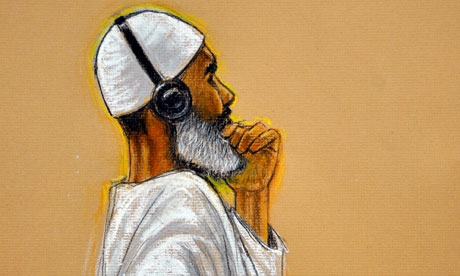- Joined
- May 6, 2009
- Messages
- 1,631
- Points
- 0
Wikileaks Afghanistan: suggestions US tried to cover up civilian casualties
Wikileaks Afghanistan: suggestions US tried to cover up civilian casualties
Fresh evidence suggesting that US-led forces attempted to cover up civilian casualties in Afghanistan has emerged through leaked military documents.
By John Bingham
Published: 9:00PM BST 27 Jul 2010

US troops In Afghanistan Photo: GETTY
They include an internal account of a disastrous operation by US Marines near the city of Jalalabad in March 2007, in which 19 unarmed civilians are said to have died and up to 50 injured. US commanders later accepted that dozens of Afghan civilians had been killed or injured in the shootings, as the marines extracted themselves from the scene of a suicide bombing in which one of their number received shrapnel wounds.
But the original incident report makes no reference to the carnage, noting only that the servicemen had “returned to JAF (Jalalabad Air Field)”. The “war logs” also detail how US special forces arranged for six 2,000lb bombs to be dropped on a compound in Helmand Province in August 2007 in an incident in which up to 300 civilians were later claimed to have been killed.
According to extracts, an internal US account of the operation states that efforts had been made to ensure that “there were no innocent Afghans in the surrounding area”. It adds that commanders believed that “high value” Taliban targets were meeting in compound. The records log a total of 144 incidents involving Afghan civilian casualties, in which 195 non-combatants are said to have died and 174 injured.
They include at least 21 cases allegedly involving British forces which are said to have led to the deaths of at least 26 people, among them 16 children. The disclosures have led to allegations that coalition forces may have committed “war crimes” in Afghanistan. In London, the British Ministry of Defence said it was examining the leaks.
Wikileaks Afghanistan: suggestions US tried to cover up civilian casualties
Fresh evidence suggesting that US-led forces attempted to cover up civilian casualties in Afghanistan has emerged through leaked military documents.
By John Bingham
Published: 9:00PM BST 27 Jul 2010

US troops In Afghanistan Photo: GETTY
They include an internal account of a disastrous operation by US Marines near the city of Jalalabad in March 2007, in which 19 unarmed civilians are said to have died and up to 50 injured. US commanders later accepted that dozens of Afghan civilians had been killed or injured in the shootings, as the marines extracted themselves from the scene of a suicide bombing in which one of their number received shrapnel wounds.
But the original incident report makes no reference to the carnage, noting only that the servicemen had “returned to JAF (Jalalabad Air Field)”. The “war logs” also detail how US special forces arranged for six 2,000lb bombs to be dropped on a compound in Helmand Province in August 2007 in an incident in which up to 300 civilians were later claimed to have been killed.
According to extracts, an internal US account of the operation states that efforts had been made to ensure that “there were no innocent Afghans in the surrounding area”. It adds that commanders believed that “high value” Taliban targets were meeting in compound. The records log a total of 144 incidents involving Afghan civilian casualties, in which 195 non-combatants are said to have died and 174 injured.
They include at least 21 cases allegedly involving British forces which are said to have led to the deaths of at least 26 people, among them 16 children. The disclosures have led to allegations that coalition forces may have committed “war crimes” in Afghanistan. In London, the British Ministry of Defence said it was examining the leaks.














